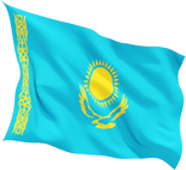The aim of ongoing reforms in our country is to ensure guarantees of happy and prosperous life. During the short period of time, a large-scale work has been carried out in judicial and legal spheres. In particular, the Decree “On measures for further reforming the judicial and legal system, strengthening the guarantees of reliable protection of citizens’ rights and freedoms” has been adopted.
As priority directions of state policy, ensuring actual independence of a judicial power, increasing the level of access to justice and reforming the judicial system have been identified. The Supreme Court and the Supreme Economic Court were merged into the Supreme Court of the Republic of Uzbekistan as a single highest judicial institution for civil, criminal, administrative and economic proceedings in order to establish a unified judicial system.
Time-based structure of courts
In order to ensure reliable judicial protection of the rights, freedoms and legitimate interests of citizens and business entities, administrative courts are authorized to consider complaints against decisions of state bodies and unlawful actions (inaction) of officials. The structure of courts has also been improved to meet the demands of modern life.
To establish an effective protection of investors’ rights by courts, the regulations on jurisdictional competence of disputes and competitive cases arising in the course of investment agreements among investors and state bodies in economic sphere have been introduced into the procedural legislation, the procedure for consideration of disputes at the request of major investors and competition parties by the judicial composition of the Supreme Court for consideration of investment disputes and competitive cases has been established.
The Higher Qualification Commission for the Selection and Recommendation of Judges under the President was abolished, and the Higher Judicial Council was established as a body of the judicial community, which assists in ensuring compliance with the constitutional principle of judicial independence.
A new procedure for the selection and appointment of candidates to judicial posts has been introduced, ensuring actual independence of judicial power.
New institutions in judicial proceedings
To increase public confidence in judicial system, the institution of “Habeas Corpus” was expanded, and judicial control over investigations was strengthened. The transfer of authority to impose preventive measures in the form of detention or prolongation of detention was the first step in this direction, and the reforms were accelerated in the following years.
Besides, a number of authorities granted by the prosecutor’s office have been transferred to the courts. To accelerate the judicial process, improve its quality, eliminate unjustified delays in rendering final decisions on cases, and enhance the role of courts in criminal proceedings, the institute of returning a criminal case by a court for further investigation was abolished.
The institution of reconciliation in criminal proceedings was expanded and is applied at all stages of court proceedings. The institutions of preliminary court hearing, pre-trial hearing in civil and economic courts, simplified proceedings and the institutions of mediation were introduced.
Over the last few years, considerable efforts to strengthen legislative, organizational and legal framework for human rights protection, incorporate international standards into national legislation and comply with international obligations have also been initiated.
Detention of persons suspected of committing a crime was reduced from 72 to 48 hours, the maximum duration of detention and house arrest as well as preliminary investigation was reduced from one year to seven months.
Effective mechanisms to prevent committing acts of torture and other cruel, inhuman or degrading treatment or punishment, as well as to strengthen accountability for such acts have been introduced. Criminal liability for falsifying evidence and using evidence obtained illegally was established.
Furthermore, with a view to reducing the excessive involvement of citizens in criminal proceedings and reducing proceedings in uncomplicated cases, the institution of plea bargaining has been introduced for crimes that are not of great public danger, less serious and grave crimes with the prosecutor on the basis of a motion by a suspect or accused person who agrees with the suspicion or accusation brought against him, actively contributed to solving the crime and compensated the harm inflicted.
Lawyers’ rights have been expanded
If law enforcement officials and the courts apply measures of procedural coercion in the form of detention, custody, house arrest or placing a person in a medical institution for examination, they shall immediately notify his family members or other close relatives.
In the process of detaining a person in cases of especially grave crimes, it is necessary to record on video the examination, search, examination of physical evidence on the scene, the investigative experiment, personal arrest, refusal of defense, personal search and seizure.
It is determined that receiving statements, explanations or testimonies from a suspect, accused or defendant by officials of bodies conducting operational and investigative activities is carried out on the basis of written permission of the investigator, prosecutor or judge and only with the participation of a defender.
In this case, from the moment a person is informed of the decision to detain him or her or to declare him or her to be a suspect until procedural actions are carried out in respect of him or her, the person is ensured a meeting in private with his or her lawyer. The rights of detainees to judicial appeal against a measure of restraint taken in absentia in the form of detention, as well as the rights of defenders to collect and present evidence have been expanded.
It is determined that lawyers can meet with their clients in special rooms, where there are no audio and video surveillance devices, without the presence of unauthorized persons without any obstacles at any time.
An expression of humane policy
As part of the ongoing institutional reforms in legal and institutional framework, comprehensive measures have been implemented aimed at creating favorable conditions for convicts and persons serving sentences, respecting their rights and freedoms, and protecting their honor and dignity.
The restrictions on visitation rights of convicted minors by their relatives have been abolished for humane reasons. A special procedure for women prisoners to meet with their children has been established, and the number of visits and telephone calls among prisoners has been increased.
The closure of the 19th Specialized Penal Colony (“Jaslyk”) of the Ministry of Internal Affairs of Karakalpakstan was extremely important in enhancing Uzbekistan’s image in the international arena.
At the same time, the fact of creating and consistently continuing the system of amnesty demonstrates that the reforms carried out in the country are fully consistent with the principles of humanity.
Thanks to this policy, the number of prisoners was halved in a short period of time. As a result, six thousand people currently serving sentences were able to be under the control of their mahalla and their families. More than twenty thousand citizens were removed from the “special lists”. The approaches to implementing the measures against extremism in Uzbekistan were conceptually reconsidered.
In October 2020, Uzbekistan for the first time was elected as a member of the Human Rights Council, one of the principal organs of the United Nations. This is an international recognition that human rights and freedoms are ensured in our country. The U.S. State Department also announced the removal of Uzbekistan from the Religious Freedom Watch List.
The updated Constitution of the Republic of Uzbekistan also reflects numerous new regulations aimed at ensuring the rights and freedoms of citizens. It has been confirmed that a person may not be detained for more than forty-eight hours without a court decision, thus any actions related to the restriction of a person’s freedom should be carried out only on the basis of a court decision.
The scope of applying the internationally recognized institution “Habeas Corpus” has been further expanded. The person in custody must be clearly explained his or her rights and the grounds for detention in understandable language. Due to this, the internationally recognized “Miranda rule” is also reflected in a new edition of the Constitution, and the mechanisms including modern methods of protecting citizens’ rights have been introduced.
Moreover, it was defined that no one is obliged to testify against himself/herself and close relatives. Enshrining these provisions in the Constitution will serve to prevent psychological pressure and threats against any person under criminal prosecution or his/her close relatives, as well as other illegal methods that diminish his/her honor and dignity. Another significant regulation is that a person cannot be found guilty or punished if his confession of guilt is the only evidence against him.
These reforms enable the country’s judicial system to reach a qualitatively new level, ensure reliable protection of citizens’ rights, freedoms, legitimate interests, and strengthen public confidence in the justice system.
Sherzod Tukhtashev,
Member of the Committee on Anti-Corruption and Judicial Affairs
under the Legislative Chamber of the Oliy Majlis












